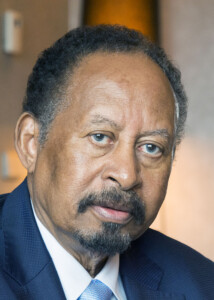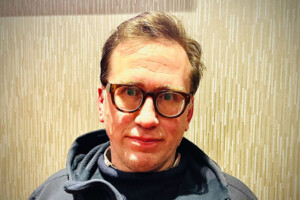Darfuri author Daoud Hari awarded for ‘journalistic courage’
The Sudanese author Daoud Ibrahim Hari received a Lebanese award for his ‘exceptional journalistic courage’ during his work as translator and guide for NGOs and journalists such as the British Philip Cox. This year, Hari and Cox were detained on the job for nearly two months by the Sudanese security service.
The Sudanese author Daoud Ibrahim Hari received a Lebanese award for his 'exceptional journalistic courage' during his work as translator and guide for NGOs and journalists such as the British Philip Cox. This year, Hari and Cox were detained on the job for nearly two months by the Sudanese security service.
The May Chidiac Foundation (MCF) awarded Hari on Thursday evening at the Royal Pavilion of the Beirut Exhibition and Leisure Center. The Lebanese Prime Minister, Minister of Culture and Information, and Members of Parliament attended the event that highlighted the growing role of women in the journalistic profession.
Hari dedicated the award to journalists who risk their lives in order to convey the truth to people. And also, to his sister who was killed in Um Baru locality on 21 August, “by a member of the Sudanese Rapid Support Forces”, as Hari himself reported to the New York Times. His sister left five children behind. “I can testify that this rebranded Janjaweed militia is not a source of stability, but an agent of death and destruction,” he said.
Hari is the author of 'The Translator: A Tribesman’s Memoir of Darfur' (2008), in which he published his memoirs of his work as language interpreter for international journalists reporting on the conflict in Darfur. This year he traveled there again along with journalist Phil Cox, who had been commissioned by the UK's Channel4 TV to investigate reports by Amnesty International that Sudanese security forces had used chemical weapons against civilians in Jebel Marra between January and August 2016.
Chemical weapons claim
Hari decided to help Phil Cox on his investigation following an Amnesty International report about the alleged use of chemical weapons which killed an estimated 200 to 250 people in Jebel Marra between January and August 2016. While in Darfur, the two filmmakers were abducted by members of the Rapid Support Forces (RSF) and tortured in detention.
“It is not the first time for me to be in prison in Sudan,” he told Radio Dabanga in an interview today. Hari was captured and detained by the Sudanese government as a spy in August 2006, along with journalist Paul Salopek and their driver Abdelraham Anu. “But I had returned to help the Darfuris, who have been tortured for years. They have to be treated as humans.”
The torture of two journalists abducted en route to Jebel Marra, was not only a grave affront to press freedom, but also proof the Sudanese authorities have something to hide in the region, said Amnesty International. Cox and Hari have produced a short film about their capture that has been exhibited this year.











 and then
and then